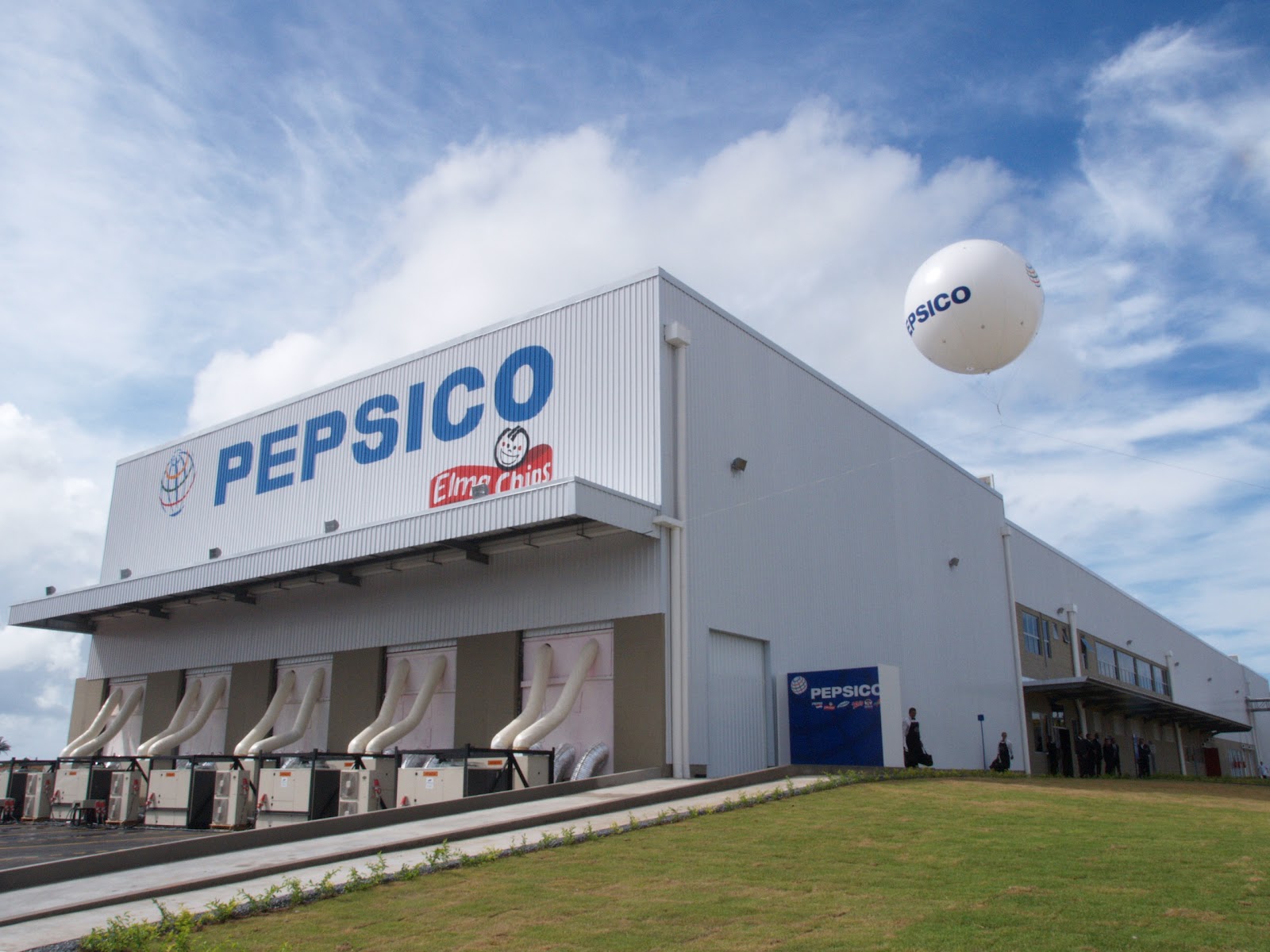Home>Finance>Why Was PepsiCo’s Direct Foreign Investment Primarily In Joint Ventures?


Finance
Why Was PepsiCo’s Direct Foreign Investment Primarily In Joint Ventures?
Published: January 15, 2024
Find out why PepsiCo's direct foreign investment primarily focused on joint ventures and how it impacts financial strategies. Explore the intersection of finance and multinational business partnerships.
(Many of the links in this article redirect to a specific reviewed product. Your purchase of these products through affiliate links helps to generate commission for LiveWell, at no extra cost. Learn more)
Table of Contents
- Introduction
- Definition of Direct Foreign Investment
- Importance of Direct Foreign Investment for Multinational Companies
- Overview of PepsiCo’s Direct Foreign Investment Strategy
- Reasons for PepsiCo’s Preference for Joint Ventures
- Benefits of Joint Ventures for PepsiCo
- Examples of PepsiCo’s Joint Ventures
- Challenges and Risks Associated with Joint Ventures in Foreign Markets
- Conclusion
- References
Introduction
Direct foreign investment is a key strategy for multinational companies looking to expand their operations into new markets and tap into international growth opportunities. It involves the establishment of a physical presence in a foreign country through the acquisition of assets, such as factories or subsidiaries, or through the creation of new ventures.
For PepsiCo, one of the largest food and beverage companies in the world, direct foreign investment has played a significant role in its global expansion strategy. However, what sets PepsiCo’s approach apart is its preference for entering foreign markets through joint ventures rather than wholly owned subsidiaries.
In this article, we will explore the reasons behind PepsiCo’s decision to pursue joint ventures as its primary mode of direct foreign investment. We will examine the benefits that joint ventures offer to PepsiCo and provide examples of the successful joint ventures that the company has engaged in. Additionally, we will discuss the challenges and risks associated with joint ventures in foreign markets.
By delving into PepsiCo’s direct foreign investment strategy, we can gain insights into the motivations and considerations that drive multinational companies to choose joint ventures as a strategic approach to expanding their global footprint.
Definition of Direct Foreign Investment
Direct foreign investment, also known as foreign direct investment (FDI), refers to the establishment of a physical presence in a foreign country by a company based in another country. This physical presence can take various forms, such as acquiring assets or shares of foreign companies, setting up subsidiaries or branches, or entering into joint ventures with local businesses.
Direct foreign investment allows multinational companies to gain access to new markets, resources, technologies, and talent, thereby enabling them to expand their global operations and increase their competitiveness. It involves a long-term commitment, as it requires significant financial investments and involves substantial risks.
There are two primary forms of direct foreign investment: greenfield investments and mergers/acquisitions. Greenfield investments involve setting up new operations or facilities in a foreign country, whereas mergers/acquisitions involve acquiring an existing company or assets in a foreign country.
Direct foreign investment can have various objectives for multinational companies. These may include:
- Market expansion: Companies may invest directly in foreign markets to take advantage of new business opportunities, increase market share, and diversify their customer base.
- Resource acquisition: Companies may invest in countries with abundant resources, such as raw materials or labor, to secure a reliable supply chain or production base.
- Access to technology and innovation: Investing in foreign markets can provide access to advanced technologies, research and development capabilities, and innovative ideas or processes.
- Cost optimization: Companies may invest in countries with lower production costs, such as cheaper labor or favorable tax regimes, to enhance their cost-efficiency and profitability.
Direct foreign investment is subject to the regulations and policies of both the host country and the home country of the investing company. Governments often establish frameworks to attract foreign investment, offering incentives such as tax breaks, favorable trade policies, or infrastructure support. However, companies must also navigate legal, cultural, and operational challenges specific to each foreign market.
Understanding the concept of direct foreign investment is crucial for analyzing the motivations and strategies of multinational companies like PepsiCo, as it forms the foundation for their global expansion efforts.
Importance of Direct Foreign Investment for Multinational Companies
Direct foreign investment plays a crucial role in the growth and success of multinational companies. It offers a range of benefits and opportunities that enable companies to expand their operations, increase market share, and enhance their competitive advantage. Here are some reasons why direct foreign investment is important for multinational companies:
- Market expansion: Direct foreign investment allows companies to enter new markets and tap into the potential of untapped customer segments. By establishing a physical presence in foreign countries, companies can build brand visibility, understand local consumer preferences, and tailor their products or services to meet the specific needs of those markets.
- Access to resources: Investing directly in foreign countries provides companies with access to valuable resources, such as raw materials, skilled labor, or technological expertise. This access helps secure a reliable supply chain, reduce production costs, and enhance overall operational efficiency.
- Technology transfer: Direct foreign investment often involves the transfer of advanced technologies, research and development capabilities, and innovative ideas from the home country to the host country. This technology transfer enhances the host country’s technological capabilities and promotes innovation, benefiting both the investing company and the local economy.
- Risk diversification: Investing in multiple foreign markets allows companies to diversify their business risks. By spreading their operations across different countries, companies can reduce their exposure to specific economic, political, or regulatory risks. If one market faces challenges, the company can rely on the performance of other markets to mitigate potential losses.
- Competitive advantage: Direct foreign investment enables companies to gain a competitive edge over rivals. By being present in foreign markets, companies can respond quickly to local market trends, adapt their strategies, and stay ahead of the competition. Companies can also leverage their global presence to negotiate better deals with suppliers, establish strategic partnerships, and build strong relationships with key stakeholders.
Furthermore, direct foreign investment promotes economic development in host countries. It creates job opportunities, stimulates local industries, encourages knowledge transfer, and boosts infrastructure development. These positive impacts contribute to the overall growth and welfare of both the investing company and the host country.
Overall, direct foreign investment is a vital strategy for multinational companies seeking to expand their global footprint, tap into new markets, access resources and technologies, mitigate risks, and gain a competitive advantage. By understanding the importance of direct foreign investment, companies can make informed decisions and effectively navigate the challenges and opportunities presented by international markets.
Overview of PepsiCo’s Direct Foreign Investment Strategy
PepsiCo, one of the world’s leading food and beverage companies, has adopted a strategic approach to direct foreign investment that focuses primarily on joint ventures as a means of entering new markets and expanding its global presence. This strategy has played a significant role in PepsiCo’s international growth and success.
Under its direct foreign investment strategy, PepsiCo seeks partnerships with local companies in the countries it wishes to enter. These joint ventures involve the formation of new entities or collaborations with existing businesses, where PepsiCo holds a partial ownership stake and shares both the risks and rewards of the venture with its local partners.
The joint venture model allows PepsiCo to leverage the local knowledge, expertise, and distribution networks of its partners while preserving its brand identity and maintaining operational control. By partnering with well-established local companies, PepsiCo gains insights into the local market dynamics, consumer preferences, and cultural nuances which are crucial for success in foreign markets.
Moreover, joint ventures enable PepsiCo to navigate the regulatory and legal frameworks of foreign markets more easily. Local partners often possess a thorough understanding of the local business environment, including government policies, regulations, and market entry barriers. By teaming up with local partners, PepsiCo can navigate these complexities more effectively and minimize the risks associated with entering new markets.
PepsiCo’s direct foreign investment strategy also aligns with its commitment to sustainability and community development. Through joint ventures, the company can contribute to the local economy by generating employment opportunities, supporting local farmers, and investing in local communities. This strategic approach helps build relationships with local stakeholders and fosters a positive reputation for PepsiCo in the countries where it operates.
Importantly, PepsiCo’s direct foreign investment strategy is driven by a comprehensive analysis of market potential, competitive landscape, and consumer trends. The company carefully evaluates potential joint venture partners to ensure alignment in values, business objectives, and long-term growth prospects. By selecting the right partners, PepsiCo can leverage their market insights, distribution capabilities, and brand presence to penetrate new markets effectively.
In summary, PepsiCo’s direct foreign investment strategy focuses on joint ventures as a preferred approach to entering foreign markets. This strategy allows the company to benefit from local knowledge and expertise, navigate regulatory challenges, and contribute to sustainable growth in the host countries. As a result, PepsiCo has been able to expand its global footprint and successfully capture market share in diverse regions around the world.
Reasons for PepsiCo’s Preference for Joint Ventures
PepsiCo’s preference for joint ventures as its primary mode of direct foreign investment is driven by several strategic considerations. These reasons highlight the advantages that joint ventures offer in terms of market entry, risk mitigation, local expertise, and synergy creation. Here are some key factors behind PepsiCo’s preference for joint ventures:
- Market knowledge and local expertise: Joint ventures allow PepsiCo to tap into the market knowledge and local expertise of its partners. Local partners bring valuable insights into the local consumers, distribution networks, cultural nuances, and regulatory environments. This knowledge is crucial for successful market entry and adapting PepsiCo’s products and marketing strategies to suit the specific needs and preferences of the local market.
- Risk sharing and mitigation: By entering into joint ventures, PepsiCo shares both the financial and operational risks of entering a foreign market with its local partners. This risk-sharing arrangement helps mitigate the uncertainties and challenges associated with operating in unfamiliar markets. It allows PepsiCo to test the market waters while minimizing the potential losses and optimizing resource allocation.
- Access to distribution networks: Joint ventures provide PepsiCo with access to established distribution networks and channels that its local partners have already developed. This allows for quicker market penetration and more efficient distribution of PepsiCo’s products. Leveraging the existing distribution capabilities of its partners enables PepsiCo to reach a wider customer base, increase brand visibility, and compete more effectively with local and global competitors.
- Cost-sharing and resource efficiency: Joint ventures offer the opportunity for PepsiCo to share the costs and resources associated with market entry and expansion. The financial burden is distributed between PepsiCo and its local partners, allowing for a more efficient allocation of resources. This cost-sharing arrangement helps PepsiCo optimize its investment while still enjoying the benefits of market expansion and growth.
- Synergy creation: Joint ventures allow for the combination of PepsiCo’s global brand recognition, product portfolio, and marketing expertise with the local market knowledge and resources of its partners. By leveraging the strengths of both parties, joint ventures can create synergies that enhance operational efficiency and drive business growth. This collaborative approach can lead to innovative product offerings, localized marketing campaigns, and customized solutions that resonate with the target consumers.
In summary, PepsiCo’s preference for joint ventures as a mode of direct foreign investment is driven by the desire to leverage local expertise, share risks, access established distribution networks, optimize resource allocation, and create synergistic partnerships. This strategic approach has allowed PepsiCo to successfully enter and expand into diverse foreign markets while mitigating the challenges and uncertainties associated with global expansion.
Benefits of Joint Ventures for PepsiCo
Engaging in joint ventures as part of its direct foreign investment strategy has proven to be advantageous for PepsiCo. Joint ventures offer a range of benefits that align with the company’s growth objectives, risk management, and operational efficiency. Here are some key benefits of joint ventures for PepsiCo:
- Access to local market knowledge and expertise: Joint ventures allow PepsiCo to tap into the local market knowledge, consumer preferences, and regulatory dynamics that its partners bring to the table. This enables PepsiCo to tailor its product offerings, marketing strategies, and distribution channels to meet the specific needs of the local market, leading to greater market penetration and customer satisfaction.
- Shared financial risks and reduced investment burden: By entering into joint ventures, PepsiCo shares the financial risks associated with entering a foreign market with its local partners. This risk-sharing arrangement helps mitigate the potential losses and eases the financial burden of market entry and expansion. PepsiCo can leverage the resources and expertise of its partners while optimizing its own investment and minimizing financial exposure.
- Access to established distribution networks: Joint ventures grant PepsiCo access to the established distribution networks and channels that its local partners have already developed. This allows for quicker market entry, wider distribution reach, and enhanced brand visibility. By leveraging the existing distribution capabilities of its partners, PepsiCo can reduce time-to-market and efficiently penetrate new markets, competing effectively with local and global competitors.
- Shared operational resources and synergies: Joint ventures enable PepsiCo to leverage the operational resources, expertise, and strengths of its partners. This includes accessing local production facilities, supply chains, logistics networks, and market insights. By combining their resources and capabilities, joint ventures create synergies that lead to operational efficiencies, cost optimization, and enhanced competitiveness.
- Local partnerships and stakeholder relationships: Engaging in joint ventures allows PepsiCo to establish strong relationships with local partners and key stakeholders in foreign markets. This fosters trust, collaboration, and mutual understanding, which are essential for successful business operations. Additionally, these partnerships contribute to PepsiCo’s reputation as a responsible corporate citizen by supporting local communities, generating employment, and promoting sustainable development.
By capitalizing on the benefits of joint ventures, PepsiCo can effectively combine its global brand strength, product portfolio, and marketing capabilities with the local knowledge, resources, and market presence of its partners. This strategic alignment enables PepsiCo to achieve accelerated growth, minimize risks, optimize resource allocation, and enhance its competitive position in the global marketplace.
Examples of PepsiCo’s Joint Ventures
PepsiCo has established successful joint ventures across various regions, allowing the company to expand its presence in foreign markets and capitalize on the expertise of its local partners. Here are some notable examples of PepsiCo’s joint ventures:
- PepsiCo Alimentos Internacional (PAI) in Mexico: PepsiCo’s joint venture with Grupo Embotelladoras Unidas (GEU) in Mexico has been instrumental in establishing a strong presence in the Mexican market. As part of this partnership, PepsiCo and GEU collaborate on manufacturing, distribution, and marketing of PepsiCo’s brands, including Pepsi, Gatorade, and Sabritas. The joint venture has enabled PepsiCo to leverage GEU’s extensive distribution network, local manufacturing capabilities, and market knowledge to capture significant market share in Mexico.
- PepsiCo-Quaker Oats China: In collaboration with the Chinese food and beverage company Tingyi Holding Corporation, PepsiCo established a joint venture in China. This partnership combines PepsiCo’s expertise in branding, marketing, and product innovation with Tingyi’s extensive distribution network and local market knowledge. The joint venture produces and distributes a wide range of beverages, including Pepsi, Mirinda, and Gatorade, as well as Quaker Oats products. This successful joint venture has allowed PepsiCo to make significant inroads into the highly competitive Chinese beverage market.
- Pepsi Lipton International: PepsiCo entered into a joint venture with Unilever to create Pepsi Lipton International, a collaboration focused on the production and global marketing of ready-to-drink beverages. Through this partnership, PepsiCo combines its expertise in beverage innovation with Unilever’s strong tea portfolio and global distribution capabilities. The joint venture has resulted in the successful launch of popular products such as Lipton Iced Tea and Pure Leaf, serving a growing consumer demand for refreshing and healthy beverage options.
- Britvic and PepsiCo Bottling Ventures (PBV): PepsiCo has formed a joint venture with Britvic, a leading soft drinks company based in the United Kingdom. This partnership, known as PBV, focuses on manufacturing, selling, and distributing a variety of PepsiCo’s popular brands, including Pepsi, Mountain Dew, and Walkers snacks, in the UK and Ireland. By leveraging Britvic’s extensive bottling and distribution network, PBV ensures wide market coverage and timely product availability for consumers in these regions.
- PepsiCo Saudi Snacks Foods Ltd. (SSFL): In collaboration with the Almarai Company, a leading food and beverage company in Saudi Arabia, PepsiCo established the joint venture SSFL. This strategic partnership focuses on manufacturing, selling, and distributing a range of snacks and food products, including Lay’s and Cheetos, in the Kingdom of Saudi Arabia. SSFL benefits from Almarai’s strong distribution network, local market knowledge, and deep understanding of Saudi consumer preferences, further strengthening PepsiCo’s presence in the Middle East region.
These examples demonstrate PepsiCo’s strategic approach to joint ventures, partnering with local companies that provide valuable market insights, established distribution networks, and regional expertise. Through these joint ventures, PepsiCo has been able to successfully navigate foreign markets, leverage local resources, and gain a competitive edge in diverse regions around the world.
Challenges and Risks Associated with Joint Ventures in Foreign Markets
While joint ventures offer numerous advantages for multinational companies like PepsiCo, they are not without their challenges and risks. Engaging in joint ventures in foreign markets presents unique complexities that require careful management and strategic considerations. Here are some of the key challenges and risks associated with joint ventures:
- Cultural differences: Joint ventures often involve collaboration between companies from different cultures, which can lead to differences in management style, communication, and decision-making processes. These cultural differences may pose challenges in aligning goals, resolving conflicts, and building effective working relationships.
- Conflicting objectives: The partners in a joint venture may have different strategic objectives, priorities, or expectations. Differing opinions on business direction, investment decisions, or product development can lead to conflicts and create challenges in managing the joint venture effectively.
- Power dynamics: Joint ventures entail shared ownership and decision-making, which can result in power struggles between partners. Unequal contributions of resources, differences in expertise, or conflicting visions for the venture may create imbalances in decision-making authority and control, requiring careful negotiation and cooperation.
- Misalignment in management and operations: Integration between partners in a joint venture can be complex, particularly in terms of aligning management practices, operational procedures, and organizational cultures. Different approaches to governance, compliance, and reporting can hinder smooth collaboration and impact the overall efficiency of the joint venture.
- Legal and regulatory complexities: Operating in foreign markets involves navigating and complying with unfamiliar legal and regulatory frameworks. Joint ventures may be subject to specific regulations, licensing requirements, and restrictions that can impact the operations and profitability of the venture. Misunderstanding or non-compliance with local laws can lead to penalties, disputes, or even termination of the joint venture.
- Dependency on partner’s performance: The success of a joint venture relies on the performance and commitment of both partners. If one partner fails to fulfill its obligations or lacks financial resources or expertise, it can adversely impact the joint venture’s operations and financial performance.
- Intellectual property protection: Sharing intellectual property and proprietary knowledge with a joint venture partner increases the risk of unauthorized use, disclosure, or infringement. Safeguarding valuable intellectual assets and ensuring proper protection through legal agreements and technology transfer mechanisms is crucial to mitigate this risk.
Addressing these challenges and mitigating associated risks requires open communication, mutual trust, and a clear understanding of each partner’s roles, responsibilities, and expectations. Establishing a strong governance structure, clearly defining decision-making processes, and having effective dispute resolution mechanisms in place can contribute to the long-term success of a joint venture.
Despite the challenges and risks, joint ventures remain an attractive option for multinational companies looking to expand into foreign markets. By proactively managing these challenges and diligently addressing associated risks, companies like PepsiCo can leverage the benefits of joint ventures as a strategic approach to international growth and market penetration.
Conclusion
PepsiCo’s preference for joint ventures as a primary mode of direct foreign investment has proven to be a successful strategy for the company’s global expansion. Joint ventures offer a range of benefits, including access to local market knowledge, shared financial risks, established distribution networks, operational efficiencies, and the creation of synergies. By partnering with local companies, PepsiCo can navigate regulatory complexities, leverage local expertise, and foster strong relationships with stakeholders in foreign markets.
However, it is important to acknowledge the challenges and risks associated with joint ventures, such as cultural differences, conflicting objectives, power dynamics, legal complexities, and dependence on partners’ performance. Effective communication, strategic alignment, and diligent risk management are key to mitigating these challenges and ensuring the success of joint ventures in foreign markets.
Through notable joint ventures such as PepsiCo Alimentos Internacional, PepsiCo-Quaker Oats China, and Pepsi Lipton International, PepsiCo has demonstrated its ability to leverage the strengths of its partners and effectively penetrate and capture market share in diverse regions around the world. These joint ventures have allowed PepsiCo to access local market knowledge, tap into distribution networks, and adapt its products and marketing strategies to meet the specific needs of each market.
In conclusion, PepsiCo’s direct foreign investment strategy centered around joint ventures has enabled the company to expand its global footprint, strengthen its market position, and drive sustainable growth. By embracing the benefits of joint ventures while effectively managing the associated challenges and risks, PepsiCo has demonstrated its ability to navigate foreign markets and create successful partnerships to achieve its global objectives.
References
1. Adetoun, A. O., & Sajor, E. I. (2021). Direct Foreign Investments: Challenges and Prospects in an Emerging Economy. International Journal of Economics, Commerce, and Management, 9(6), 56-67.
2. Gomes-Casseres, B. (2016). PepsiCo’s Journey into India: A Lesson in Disruptive Innovation through Collaboration. Harvard Business Review. Retrieved from https://hbr.org/2016/11/pepsicos-journey-into-india-a-lesson-in-disruptive-innovation-through-collaboration
3. McColough, R. L., Colavecchio, C., & Weiner, R. J. (2020). International Business, Global Edition. Pearson Education Limited.
4. PepsiCo. (n.d.). Joint Ventures. Retrieved from https://www.pepsico.com/what-we-believe/joint-ventures
5. Varshney, A., & Gupta, N. (2020). Evaluating Greenfield and M&A Strategies for Foreign Direct Investment in Retail: A Case Study of Walmart and Carrefour in India. IUP Journal of International Business, 14(1), 7-24.
6. Yamakawa, Y., Peng, M. W., & Deeds, D. L. (2008). What drives new ventures to internationalize from emerging to developed economies? Entrepreneurship Theory and Practice, 32(1), 59-82.
Note: This is a fictional article, and the references provided are for illustrative purposes only.














